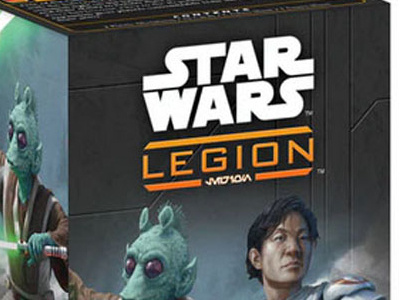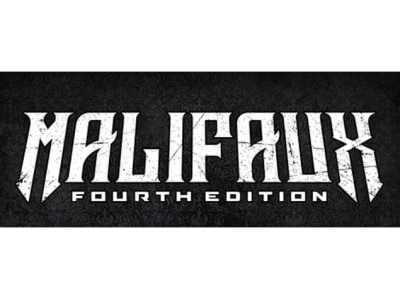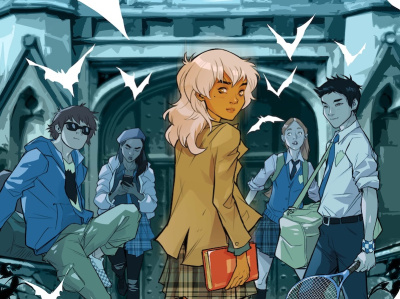
We recently caught up with Image Publisher Jim Valentino and asked him about the issues of the day, including what challenges he perceives from CrossGen's new initiative, what limits we may see on the currently hot retro trend, and Image's plans for its book distribution in the wake of the LPC bankruptcy, among other topics.
It appears obvious that CrossGen is attempting to 'poach' some studios away from Image. What's your reaction to the two new imprints that CrossGen announced?
Well, my first reaction is to disagree with that basic notion that they're obviously trying to 'poach' us. Were WE poaching DC when Leave It To Chance came here, or Dark Horse us when Tony Daniel went there? It's a free marketplace. Image has never had a 'non-competition' clause and, for the last decade, has proven over and over again, that if a creator is unhappy here or feels his/her creation could better be served elsewhere, they are free to leave without prejudice.
Secondly, unless I'm missing something, I see no mass exodus from Image to CrossGen. If there is one, I'm unaware of it. I find this 'us versus them' mentality that seems to permeate the industry to be rather ridiculous. I have not seen or heard Mark Alessi attack Image. If he has, please show me the quote and I'll respond to it. To the contrary, I've seen him go out of his way to say nice things about me.
Finally, my reaction is that I've always felt that it's a good thing for creators to have as options as possible. All this really means is that there's another publisher offering a creator ownership deal. That's got to be good for creators. We have always said that the Image Deal does not work for everyone. I believe we offer THE most creator-friendly option in the business. You own your rights, you own your film, you own your physical books and you are free to stay or go. If CrossGen is offering that as well, we are flattered that they are copying our model.
Has the CrossGen challenge caused Image to rethink or rework the ways in which it deals with its member studios, particularly those parts of the organization that weren't there at the beginning?
We have always tried to deal with people honestly and professionally, while at the same time respecting their individual vision and generally being as supportive as we can be. That won't change.
We're constantly moving into new foreign markets -- we just don't tend to announce it every time we enter a new territory. Besides, even though we're in over 50 countries, we're still just pikers in that area compared to Marvel and DC. And we have one of the best and most aggressive library/book trade strategies around. We just tend to play things a bit more low key than others.
If you're referring to offering creators a 'menu of options' in terms of how they can conduct business with Image, this was something the Image partners discussed well over a year ago. Perhaps this will light a fire under our butts to actually implement it.
What exactly did Mark Alessi say to you (if anything) at Wizard World Chicago?
(Laughs) Oh, I've HEARD that we got into a screaming match and almost came to blows. Nothing could be further from the truth. Mark and I had a friendly, polite conversation, as we always do. He gave me a head's up on what he was about to announce publicly and the reasons why he was doing this. There was no threat, implied, inferred or spoken.
What do you think of his announced timetable for making CrossGen the number one comic publisher?
I think that time tells its own tale. Let's review the question in two years.
Are you aware of any '5% rule' that gives publishers with that market share a spot in the front of Previews with the 'premier' publishers?
I am not aware of this or what the rules factoring it would be, you would have to talk to Diamond.
Would you have any objection to CrossGen becoming a 'premier' publisher if the company amassed more than a 5% share?
If there is a 5% 'rule' and if they meet that plateau according to whatever provisions it entails then my objection to it, if I had one, wouldn't be relevant.
That said, no, I wouldn't.
Image started the retro trend with the successful revival of the G.I. Joe comic. Why do you think these comics have been so successful?
I think that when we reach our middle to late twenties/early thirties we get inundated with the responsibilities of adulthood, everything from bills to wives and kids and everything in-between. I think at that juncture, we get nostalgic for the things that brought us pleasure in our youth. So, the kids who were growing up in the '80s are pretty much right on target. These are their icons, these are their memories. That they're buying them is a matter of nostalgia, not marketing.
What other retro properties is Image planning to revive?
Well, we're already doing G.I. Joe, the Micronauts, Masters of the Universe and, through Top Cow, Battle of the Planets.
We are always in negotiations with video game companies and Hollywood studios on any number of properties to bring to comics. When we believe that there is something worth pursuing, we do.
How close are we to the limit of the market for retro properties? Is there a danger that this trend is run into the ground by the revival of more obscure properties?
Well, the market already has all of the above mentioned plus the Transformers and the Thundercats. After you get past maybe Robotech and one or two others, what is there? The Silverhawks? Robocop? Alf? I dunno....
I don't think it's a question of it running into the ground due to more obscure properties, those will see diminished returns based on their own popularity and a closing window of opportunity. What I do believe is that these things tend to run their course with an 18-24 month window, regardless how many of them are out there. Nostalgia is a wonderful thing, but it does tend to be satiated after a while.
What is Image's decision on which bookstore distributor to use after July 31?
This is still under discussion by the Board of Directors.
How will you come to that decision?
Our decision, when made, will be a matter of presenting the relative merits of the proposals we have on the table, debating those merits and voting on what we feel is the best course of action for both the company and those who have entrusted us to publish their books. I have already prepared my analysis of the various deals we have been offered and will present my recommendation to the Board at the next meeting. And, no, I will not divulge that recommendation at this juncture.
What percentage is the bookstore market of Image's over-all sales, and what's the sales trend vs. distribution through Diamond?
We're about 20-25% and growing. In both venues trade paperbacks are ours and every other publisher's fastest growth category with libraries leading the curve. Librarians understand that the graphic novel appeals to what they call the YA (Young Adult) reader. They are aggressively courting that reader.
What differences do you see between the two channels?
The biggest difference, outside of returnability, is choice of format. The Direct Sales Market is set up to handle the sale and distribution of periodicals, the book trade wants paperbacks (graphic novels) and hardcovers, the library market wants hardcovers, for what should be obvious reasons.
How can pop culture retailers (comic stores, etc.) take advantage of the growth of interest in comic material coming from the bookstores? For example, should comic retailers see themselves as competing with the bookstores to recruit new readers, or as the beneficiaries of new consumers that are recruited first in bookstores, then migrate to comic stores?
Oh, clearly the latter. To that end we put the Comic Book Locator Service number in our books. I do not believe that a comic book store can be beat for knowledge and depth of product. That said, there are huge areas of this country that are not serviced by comic book stores and there far too many people who are unaware that comics are still being printed. If, by expanding our product into more accessible venues where readers congregate, how can that be seen as anything but a win-win situation for everyone? I believe that the reader whose interest is spurred from a purchase at a Barnes & Noble or their discovery in a library will naturally gravitate toward comic shops.







